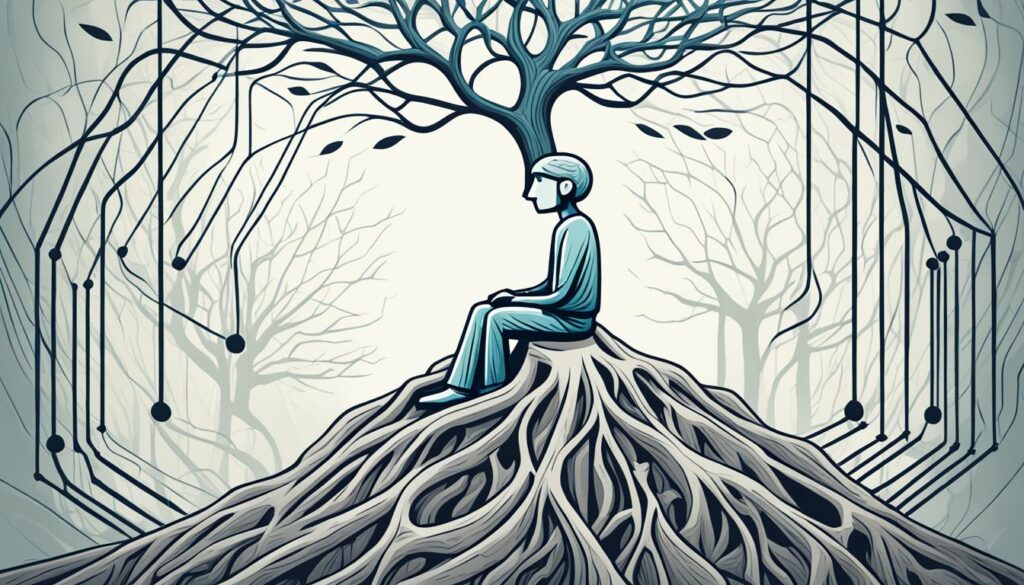Do introverts get angry? The common belief is that introverts are quiet and reserved, rarely showing their emotions. But what happens when introverts do get angry or frustrated? How do you navigate their emotional landscape and effectively communicate with them? Let’s see 9 powerful ways to cope with angry/frustrated introverts and foster better understanding and communication. Get ready to challenge some common beliefs and discover new strategies that can help both introverts and those around them manage conflicts and promote healthier relationships.
Key Takeaways:
- Introverts can experience anger and frustration, albeit in different ways compared to extroverts
- Giving space and respecting their need for solitude is crucial when introverts are angry or frustrated
- Asking introverts how you can support them from afar shows respect for their boundaries and preferences
- When an angry or frustrated introvert is ready to share, practice active listening and avoid becoming defensive
- Encourage introverts to reflect on what may have contributed to their anger or frustration for personal growth
Give space initially, don’t crowd
When an introvert is angry or frustrated, it’s essential to respect their communication style and give them the space and time they need to process their emotions. Crowding or pressuring them to talk immediately can exacerbate their distress and potentially escalate the situation.
Introverts thrive in solitude and often find solace in quiet spaces where they can calm down and recharge. By allowing them to retreat to a peaceful environment, you provide them with the opportunity to collect their thoughts and regain their emotional balance. This space is crucial for introverts to process their emotions in their unique way.
By respecting their need for solitude and offering them the space they require, you create an environment that fosters emotional well-being and enables them to better navigate their anger or frustration.
Once an introvert has had time to collect their thoughts and recharge, they may be more receptive to discussing their feelings. It’s essential to approach them gently and empathetically, allowing them to open up at their own pace. By following this approach, you can lay the foundation for effective conflict resolution and create a safe space for open communication.
Remember that introverts have their unique communication styles, and honoring these preferences can significantly improve the quality of your interactions when dealing with their anger or frustration.
Ask how you can support from afar
When dealing with an angry or frustrated introvert, it is crucial to avoid making assumptions about their needs. Instead, ask them directly how you can provide support from a distance. By doing so, you demonstrate respect for their boundaries and preferences, ensuring that you offer assistance and guidance in a way that best suits their introverted nature.
Introverts have unique ways of processing emotions, and their preferred methods of communication may differ. Some introverts may appreciate written communication such as email or text messages, where they can have time to gather their thoughts and express themselves more comfortably. Others may prefer a simple gesture, like checking in without overwhelming them with questions or advice.
By understanding and respecting their needs, you can prevent further frustration and provide valuable support for their emotional well-being.

| Ways to Support Angry/Frustrated Introverts from Afar |
|---|
| 1. Ask them directly how you can help |
| 2. Respect their boundaries and preferences |
| 3. Offer written communication options |
| 4. Check in without overwhelming them |
Listen patiently once ready to share
When an angry or frustrated introvert is ready to share their feelings, it is crucial to be a good listener. Give them your undivided attention and allow them to express themselves without interruption. Actively listen to their words and emotions, showing empathy and understanding. Validating their feelings can help create a safe space for them to open up and promote effective conflict resolution.
Here are some key tips for listening patiently:
- Give your full attention to the introvert, maintaining eye contact and non-verbal cues that show you are engaged.
- Avoid interrupting or interjecting with your own opinions or solutions.
- Show empathy by acknowledging their emotions and demonstrating that you understand their perspective.
- Ask open-ended questions to encourage further sharing and clarify any points.
- Avoid making assumptions or jumping to conclusions about their feelings or motivations.
- Refrain from dismissing their emotions or invalidating their experiences.
By listening patiently, you can create a supportive environment for introverts to express themselves, promote effective conflict resolution, and work towards calming their emotions.
Reflect on what may have contributed
Encouraging the introvert to reflect on what may have contributed to their anger or frustration is an essential step towards understanding and managing their emotions effectively. By exploring the underlying triggers or stressors that might be exacerbating their emotions, they can gain greater self-awareness and insight into their own behavior.
This reflection can help them identify patterns and recognize the root causes of their anger, leading to personal growth and improved emotional resilience. It allows them to develop a deeper understanding of themselves and their reactions, enabling them to implement more effective stress management techniques.
For example, an introvert may reflect and realize that their frustration often arises from a lack of boundaries in their personal and professional life. This insight could prompt them to set clear limits and communicate their needs more assertively, reducing the likelihood of anger and frustration.

| Reflecting on What May Have Contributed to Anger or Frustration |
|---|
| Encourage introspection |
| Explore underlying triggers and stressors |
| Promote self-awareness and personal growth |
| Develop effective stress management techniques |
Avoid defensiveness to criticism
When an angry or frustrated introvert expresses criticism or negative feedback, it’s crucial to avoid becoming defensive. Instead, try to understand their perspective and empathize with their emotions. Responding defensively may cause them to retreat further and hinder productive communication.
Practicing active listening and maintaining an open mind can foster understanding and help find common ground. By remaining receptive and receptive to their concerns, you can build empathy and strengthen the connection between you.
Remember, the goal is to create an atmosphere where both parties feel heard and respected.
Suggest tension-releasing alone activities
When dealing with anger or frustration, introverts often find solace in engaging in tension-releasing activities that align with their introverted nature. Encouraging them to partake in these solo activities can significantly contribute to their stress management and anger management techniques. Here are some suggestions to provide them with opportunities for finding inner calm:
- Journaling: Encourage the introvert to maintain a journal where they can express their emotions and thoughts freely. Writing can serve as a cathartic outlet and help them process and reflect on their feelings.
- Engaging in Creative Pursuits: Suggest activities such as painting, drawing, writing poetry, or playing an instrument. These creative outlets can serve as a means of self-expression and provide a sense of tranquility and fulfillment.
- Spending Time in Nature: Recommend spending time in natural surroundings, whether it’s going for a hike, a leisurely stroll in the park, or simply sitting by a serene body of water. Being in nature can have a calming effect on introverts and allow them to connect with their inner selves.
Respecting the introvert’s need for solitude and providing them with support to engage in these activities can significantly contribute to their overall well-being and help them manage their anger and stress more effectively.

Express care through follow up, not words
Show your care and support for the angry or frustrated introvert by taking action rather than relying solely on words. Following up with them after they have calmed down shows that you genuinely care about their well-being. Consider checking in on them or offering a helping hand when they need it the most. Actions speak louder than words, and consistently demonstrating support can strengthen the relationship and build trust.
Building empathy with introverted individuals is essential for effective communication and understanding. By actively following up, you show that you value their emotions and are committed to supporting them. This can be as simple as sending a thoughtful message or offering to assist them with a task. Your genuine concern will go a long way in fostering a sense of trust and connection.
Communicate continued availability
Once you have provided initial support to an angry or frustrated introvert, it’s important to communicate that you are available for ongoing support whenever they may need it. This reassurance can help them feel safe and secure, knowing that they have someone to turn to during difficult times.
You can let them know that you are a safe space for them to share their emotions by emphasizing that you are willing to listen without judgment. Avoid making them feel obligated to talk, but instead express that you are there to support them whenever they are ready.
To ensure effective communication, consistently reinforce your availability and willingness to help. This can be done through regular check-ins, simple messages letting them know you’re there, or even offering specific actions you can take to support them. Consistency and reliability can go a long way in building trust and fostering a supportive relationship.

| Benefits of Communicating Continued Availability | Actions to Demonstrate Availability |
|---|---|
|
|
Applaud efforts to express constructively
It’s important to acknowledge and applaud the efforts of angry or frustrated introverts when they express their emotions in a constructive manner. Recognizing their ability to communicate effectively even in difficult situations can foster a sense of accomplishment and encourage continued growth in conflict resolution and emotion regulation. By offering praise and appreciation, you validate their progress and demonstrate your support for their development.
Encouraging open and honest communication is key in helping angry or frustrated introverts navigate conflicts. By emphasizing the importance of finding mutually beneficial solutions, you create a safe space where both parties can express their needs and concerns. Highlight the value of active listening, understanding, and compromise to cultivate a constructive dialogue that leads to resolution.
As you interact with angry or frustrated introverts, it’s essential to recognize the progress they’ve made in managing their anger or frustration. Acknowledge their growth in handling difficult emotions and reinforce positive communication strategies. By focusing on their improvements, you empower them to continue building effective conflict resolution skills and foster healthier relationships in the future.
Remember, applauding the efforts of angry or frustrated introverts not only validates their progress but also encourages their ongoing development in managing emotions and resolving conflicts in a constructive manner.
FAQ
How can I effectively deal with angry/frustrated introverts?
Understanding and effectively dealing with angry and frustrated introverts requires specific strategies and approaches. This article provides nine powerful ways to navigate the emotional landscape of angry/frustrated introverts and foster better communication and understanding.
Should I give space to an angry or frustrated introvert?
When an introvert is angry or frustrated, it’s important to give them space and time to process their emotions. Respect their need for solitude and allow them to retreat to a quiet space where they can calm down and recharge. Once they have had time to collect their thoughts, they may be more open to discussing their feelings.
How can I support an angry or frustrated introvert from afar?
Instead of assuming what an angry or frustrated introvert needs, ask them directly how you can support them from afar. Respect their boundaries and preferences for how they want to receive assistance and guidance. Some introverts may prefer written communication like email or text messages, while others may appreciate a simple gesture of checking in without overwhelming them with questions or advice. Understanding their needs and meeting them halfway can help prevent further frustration and support their emotional well-being.
How can I effectively listen to an angry or frustrated introvert?
When an angry or frustrated introvert is ready to share their feelings, be an attentive and patient listener. Give them your full attention and actively listen without interrupting or offering immediate solutions. Validate their emotions and show empathy by acknowledging their experience and demonstrating that you understand their perspective. Avoid jumping to conclusions or dismissing their feelings, as this can further escalate their anger or frustration.
What should I encourage an angry or frustrated introvert to do?
Encourage the angry or frustrated introvert to engage in tension-releasing activities that align with their introverted nature. Suggest activities like journaling, engaging in creative pursuits, or spending time in nature. These solo activities provide outlets for processing emotions and finding inner calm. Respect their need for solitude and provide support in creating opportunities for them to engage in these activities.
How should I respond to criticism from an angry or frustrated introvert?
When an angry or frustrated introvert expresses criticism or negative feedback, avoid becoming defensive. Instead, try to understand their perspective and empathize with their emotions. Responding defensively may cause them to retreat further and hinder productive communication. Practice active listening and maintain an open mind to foster understanding and find common ground.
How can I show support for an angry or frustrated introvert?
Show your care and support for the angry or frustrated introvert through actions, rather than just words. Follow up with them after they have calmed down and express your concern by checking in or offering a helping hand. Actions speak louder than words, and demonstrating consistent support can strengthen the relationship and build trust.
How can I communicate my availability to an angry or frustrated introvert?
Let the angry or frustrated introvert know that you are available for support whenever they need it. Reassure them that you are a safe space to share their emotions and that you are willing to listen without judgment. Consistently communicate your availability and willingness to help, as this can provide them with a sense of security and reassurance.
How can I encourage an angry or frustrated introvert to express their emotions constructively?
Acknowledge and applaud the angry or frustrated introvert’s efforts to express their emotions constructively. Encourage open and honest communication, emphasizing the importance of finding mutually beneficial solutions. Recognize their progress and growth in managing their anger or frustration, and reinforce positive communication strategies for future conflicts.

